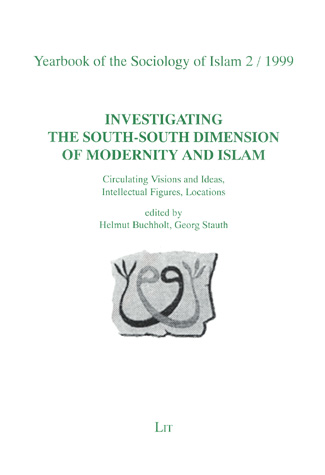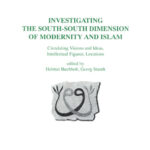Beschreibung
The second volume of the Yearbook of Sociology enters into a
new terrain in the analysis of relationships which are
grouped around the tensions between Islam and Modernity: the
South-South dimension of cultural exchange. The editors,
Georg Stauth and Helmut Buchholt, propose with this volume
to limit in a first step of analysis the South-South
dimension, first, to the intermediary role of Islam as a
pattern of cultural exchange between various regions of the
Non-Western World. More specifically, here, the perspective
focusses on the Middle East and Southeast Asia. Second, like
with Islam, the circulation of mundane ideas, such as
Feminism, Ghandism, Socialism, the Non-alignment movement
and Postmodernism contributed to the gradual shaping of
patterns and ideas of cultural reconstruction in the
national cultures, exemplified in this volume with
intellectual developments, Islamic and non-Islamic, in
Egypt, Bangladesh, Iran and Malaysia. Third, local groups
and cultural settings are largely effected by
cross-religious and interregional discourse in a South-South
dimension, and this is studied, here, with examples drawn
from Turkey, Sudan, Southern Thailand and the Indonesian
Moluccas. These exchanges stand in an ambiguous relationship
to colonial and post-colonial structures, however, they also
reach far beyond any open expected form of Western
domination. At the same time the South-South dimension
contributed to bring forth modes of modernity which in
itself exceed the visions and ideas of local traditions,
Islam and the West all alike.
Table of Contents:
1 Speculations on South-South Connections, Modernity and
Islam, Mona Abaza; 2 Behind the Veil: Islam in
Malaysia and Tunesia, Asma Larif-Beatrix; 3 Local
Islam and Islamization between the Middle East and Southeast
Asia, Georg Stauth; 4 From the Cape to to Istanbul:
Transnational Networks and communal Conflicts, Roman
Loimeier; 5 Satyagraha. Ghandi’s Influence on an Egyptian
Feminist, Synthia Nelson; 6 Islam and Socialism:
Perspectives from Autonomous Social Science and
Occidentalism, Syed Farid Alatas; 7 Islam and
National Reconstruction between the Middle East and
Southeast Asia: Three Intellectual Figures, Mona
Abaza; 8 The Secular Author and the Religious Readers:
Rushdie, Nasrin and the Muslims in Bangladesh, Habib
Khondker; 9 Female Agency and Networking in a Sudanese
Village, Ruth Klein Hessling; 10 Publicising
Religion, Differentiation and De-Differentiation: Alevits
between Berlin and Anatolia, Refika Sariönder;
11 Visions, Claims, and Utopia: re-negotiating social space
for Muslims in Patani/Southern Thailand, Alexander
Horstmann; 12 Sowohi and Joguru: The Guardien of
“Islam”. The understanding of local Islam on Tidore/North
Maluku/Indonesia, Lany Probojo.
Helmut Buchholt and Georg Stauth are sociologists and teach
at the University of Bielefeld.


